To kick off the very first day of Black History Month at McCallum on February 1, social studies teachers were given the opportunity to take their students, either in 5th, 6th or 8th period, to the Fine Arts Theatre for a talk by Dr. Leonard Moore, Vice President for Diversity and Community Engagement at the University of Texas, and a panel discussion led by the McCallum Students of Color Alliance.
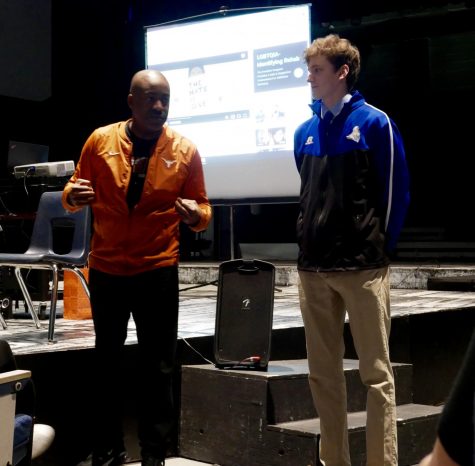
Dr. Moore talks with sophomore Rob Wade about stereotypes for African Americans in basketball. Prior to calling Wade on stage, he asked the group why most of the starting players on the UT basketball team are black. Someone in the back of the theater yelled jokingly “because white people can’t jump.” Moore asked Wade if he played basketball and confirmed that he was not vertically challenged. Photo by Kristen Tibbetts.
“I really wanted Black History Month to be our first initiative at McCallum,” Students of Color Alliance president Jordan Bibby explained. “With Ms. O’Keefe and Ms. Griswold, we partnered up with Mr. Featherstone to try and see what we could do differently this year that might spark more conversations and hopefully get people to become more interested in activism and just raise awareness about the black experience in America.”
Bibby and the rest of the club met with Dr. Moore for the first time before the presentation.
Dr. Moore spoke about his personal experiences living and working in central Texas, describing five specific moments in his life where he experienced prejudice. Some of them were in his professional career, such as a colleague mistaking him for a UT basketball coach instead of a Vice President. Others were on his daily commute to Austin, where he has been pulled over and searched twice by the police.
“I believe very few people are racist.” Dr. Moore said in his presentation.
The discrimination, he believes, comes from people’s subconscious prejudice and is fueled by stereotypes.
He pointed out that even seemingly harmless stereotypes, such as that African Americans are more skilled athletes, can be negative. To prove this point, Dr. Moore called up sophomore and varsity basketball player Rob Wade from the crowd to answer a few questions about the impact of race in basketball. Wade admitted that most successful NBA players were African American, but Dr. Moore emphasized that this disparity was caused by stereotypes, not biology.
He then explained that because society expects African Americans to be more athletic than their white counterparts, society also expects professional careers to be relatively dominated by white men. Both assumptions, he concluded, were harmful.
Throughout his talk, Dr. Moore encouraged the audience to share their opinions and give feedback, all in an attempt to better understand how prejudice affects society today.
“I hope that from Dr. Moore’s talk people see the extent of racism and prejudice in everyday life and how it’s ingrained in our country’s history,” Bibby said.
After Dr. Moore’s discussion, the audience watched clips from the movie “The Hate U Give” while a panel of students discussed how the events in the movie were similar to their own experiences and answered anonymous questions from the audience.
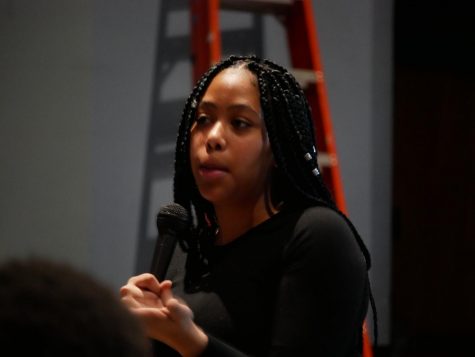
Senior Naiya Antar responds to a video clip from the movie “The Hate U Give” about police stop-and-frisk policies and compares it with experiences in her own life. She said her family coached her about how to handle interactions with the police to protect herself. For example, she was taught to narrate her actions before taking them so the police would know her intentions. Photo by Kristen Tibbetts.
Bibby participated in each class period’s panel.
“From the panel, I hope people got to see a new perspective on issues that they may have never faced or even be aware of,” Bibby said. “It was eye-opening for me to realize the extent to which my life has been different from other students because of the color of my skin.”


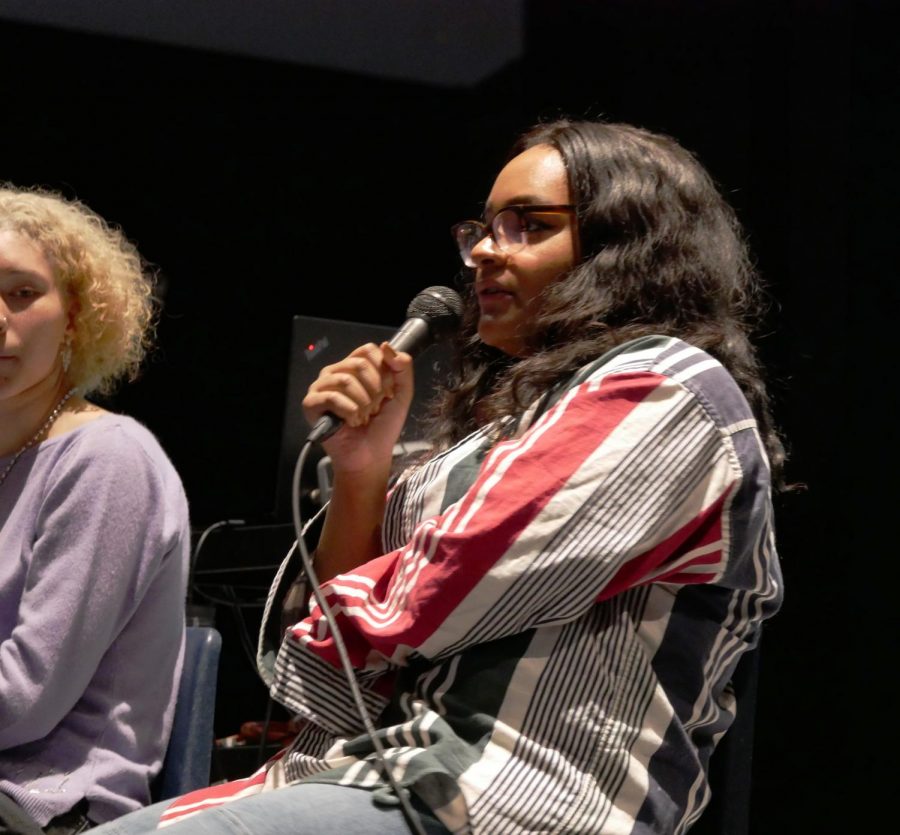
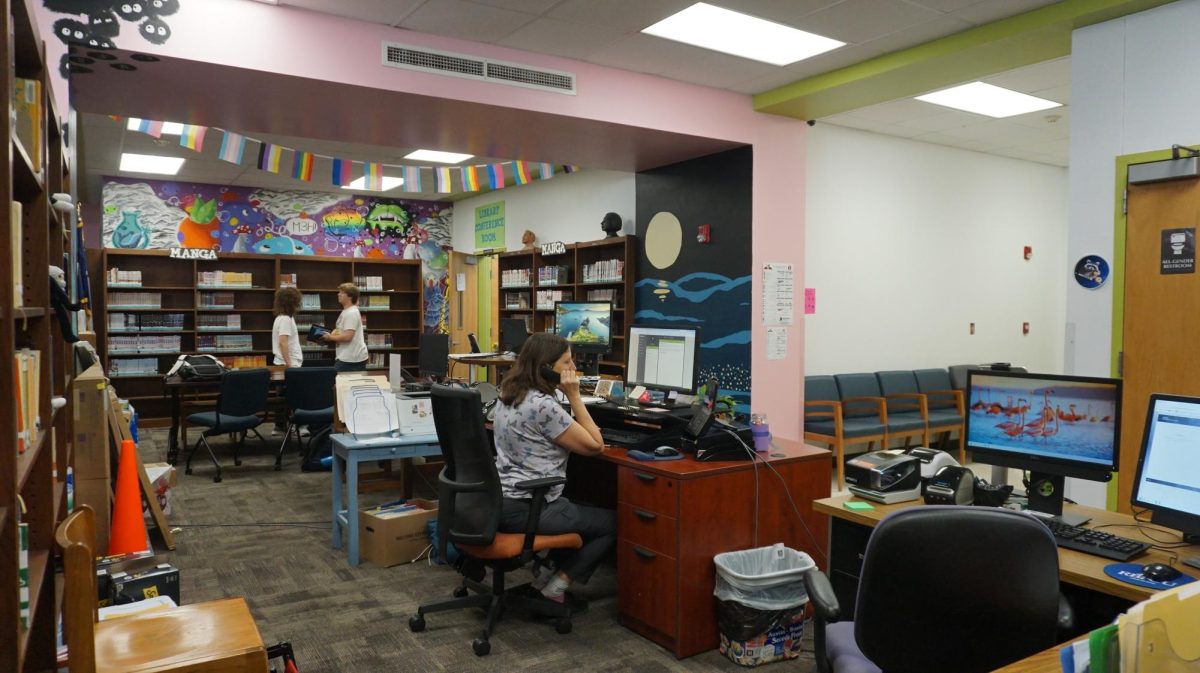
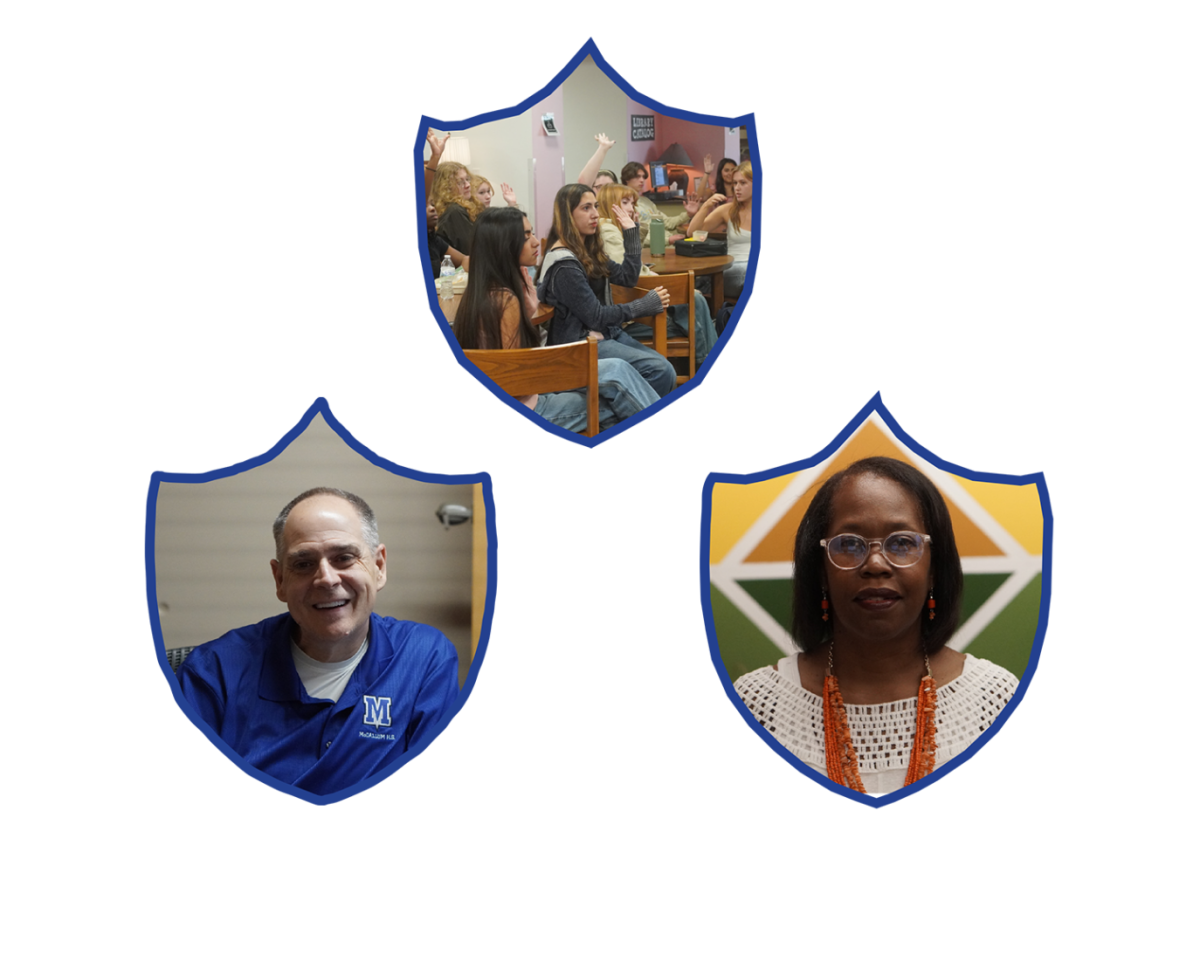


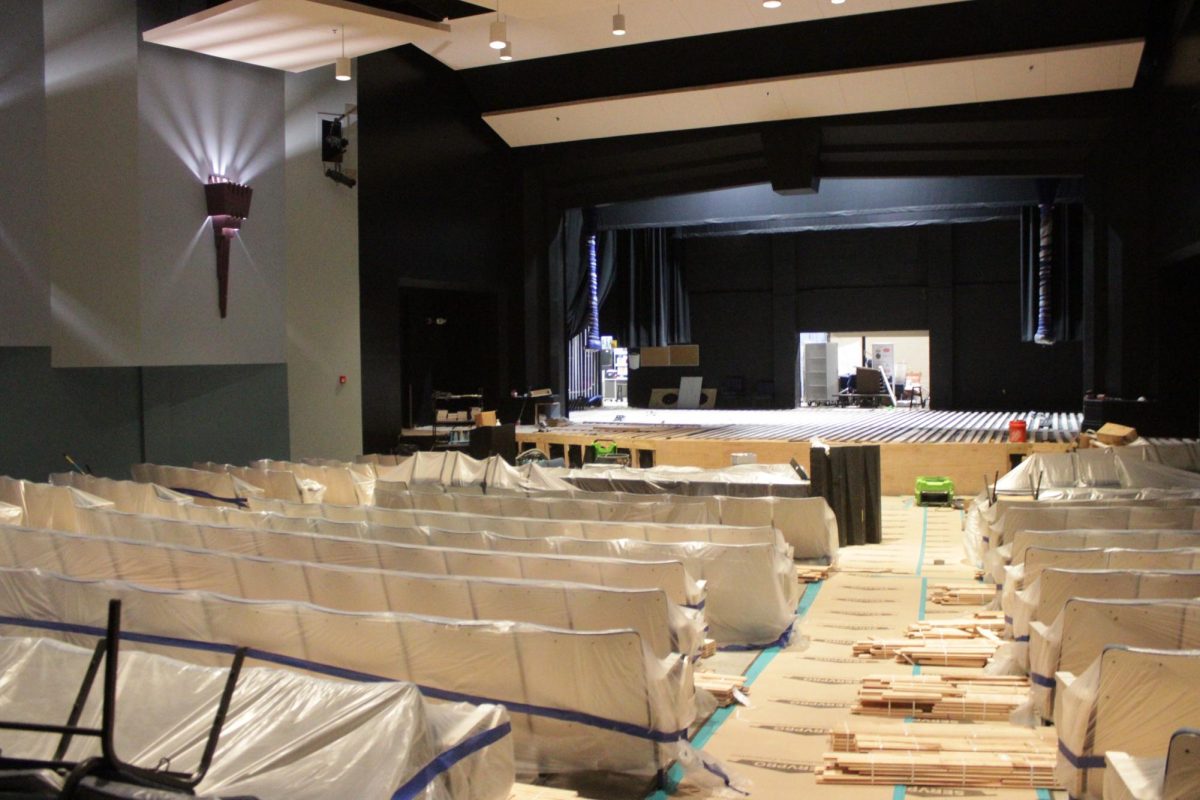
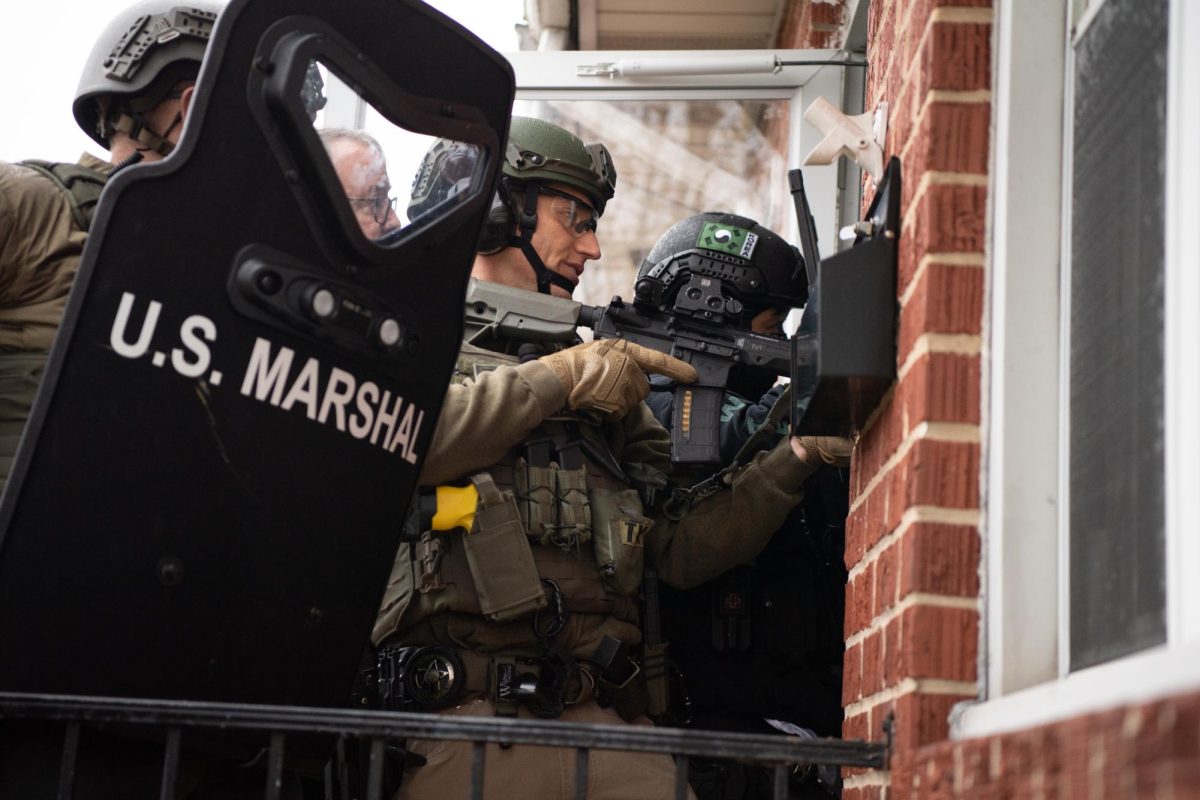
luca snowhorn • Feb 27, 2019 at 2:22 pm
When i attended the “meeting” of people in the theater I was very moved. Reading these stories was beautiful and touching and definitely opened my eyes to things I had not thought about before.